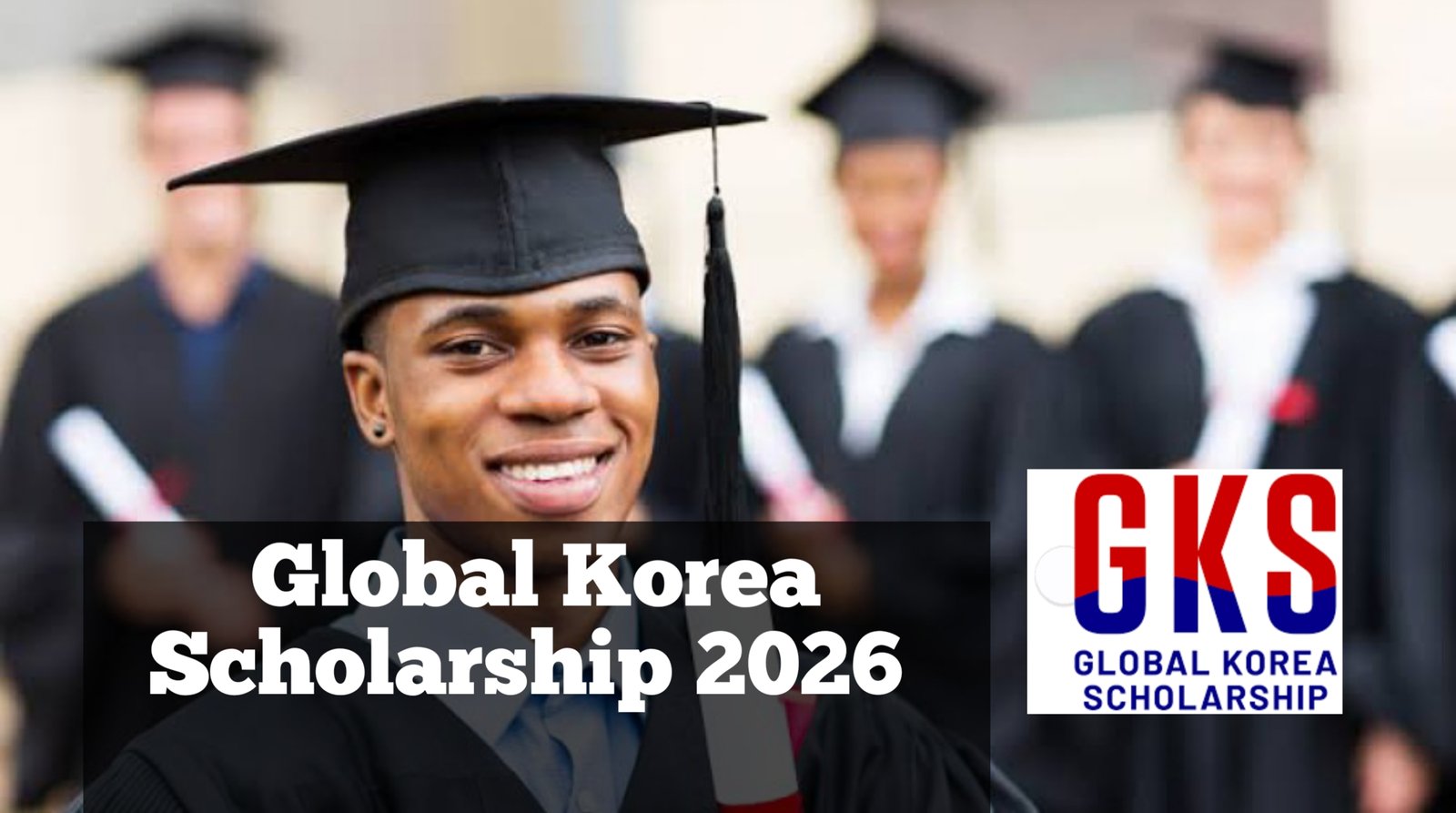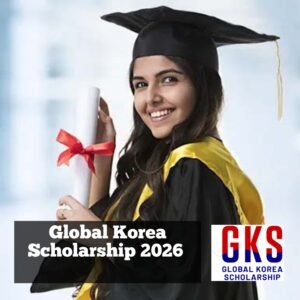
The Global Korea Scholarship (GKS) is a scholarship offered by the Korean government with the aim of attracting international students to study in South Korea.
This article gives you updated information on how much the scholarship covers for 2026, what the eligibility criteria are, how competitive it is, and other key points you will want to know if you’re considering applying.
| Item | Details |
|---|---|
| Scholarship Name | Global Korea Scholarship (GKS) 2026 |
| Host / Sponsor | Government of the Republic of Korea (via National Institute for International Education (NIIED)) 2 |
| Levels Covered | Undergraduate & Graduate (Masters/Doctoral) – degree programs after language training. 3 |
| Application Period (Undergraduate Track) | 15 Sept 2025 to 30 Sept 2025 (approx) 4 |
| Quota (Undergraduate Track) | Approximately 280 students worldwide. 5 |
| Scholarship Coverage / Benefits |
|
| Typical Monthly Stipend Estimate |
|
| Eligibility Highlights |
|
| Selection & Competitiveness | No fixed global acceptance rate published, but highly competitive and quotas are limited. 16 |
| Official Information & Application Portal | Study in Korea – GKS Program (via NIIED) 17 |
What the scholarship covers (How much is it)
The GKS is described as a fully-funded programme. According to official and recent sources:
- For the 2026 undergraduate track, the application notice states that the scholarship covers full tuition, Korean-language course fees, round-trip airfare, settlement support and academic incentives.
- For the 2025 graduate/degree level, one source lists the monthly allowance for degree programmes as about 15,720,000 KRW per year (approximately 1,310,000 KRW/month) for the “degree programme” category.
- For 2026, one website suggests a monthly stipend of “around KRW 1,000,000 to 1,500,000 depending on programme type.”
- The official site for undergraduate 2026 says the degree programme includes 1 year Korean language + 4-6 years of study (for bachelor’s).
In your terms, this means:
- Tuition fees are waived.
- Monthly living stipend is approximately KRW 1,000,000 (≈ USD 700-800) or more, varying by category and university.
- Airfare and Korean-language training costs are also covered.
- Additional allowances (settlement, TOPIK proficiency bonuses) can apply.
Thus, the GKS offers an excellent funding package that significantly reduces financial burden for recipients.

Eligibility & acceptance / competitiveness
Eligibility highlights:
- For undergraduate track (GKS-U) 2026: Applicants must be foreign nationals (non-Korean), under 25 years of age as of 1 March 2026.
- For graduate/research track: Applicants must generally be under 40 years of age as of a certain date.
READ: MEXT Scholarship 2025 – Full Funding, Stipend & How to Apply
Applicants and their parents must not hold Korean citizenship.
Academic requirements vary, but for graduate track one guideline states CGPA equivalent to top 20% of class or specific minimums (e.g., 2.64/4.0).
Application process & timeline:
- For 2026 undergraduate: Application period for some tracks runs from 15 Sept 2025 to 30 Sept 2025 (Embassy Track).
- Results generally announced early in the following year.
How competitive is it?
A specific “acceptance rate” is not published by the Korean government. However:
- The GKS is described as highly competitive.
- One document for the USA mentions only 19 candidates for a particular region in 2025.
- Quota numbers for 2026 undergraduate: e.g., total selection for those tracks is limited (one source: 280 scholarships from 71 countries)
Given these facts, you should treat the GKS as a selective award where meeting eligibility is necessary but not sufficient; you will need to present strong academic credentials, language readiness, and a clear motivation.
Benefits beyond money
Beyond tuition and stipend, the GKS also offers:
- Korean language training for one year prior to degree/associate study.
- Health insurance / medical coverage.
- Settlement allowance (one-time) and possibly completion bonuses.
- Full tuition fee coverage and entrance exam/registration fees.
These ensure the recipient can focus on study, adaptation, and cultural immersion, rather than heavy financial worry.
How to apply
Here’s a general step-by-step:
1. Check the GKS notice on the official “Study in Korea” website to find the track (Embassy or University) that applies to your country.
2. Prepare documents: application form, study plan, personal statement, transcripts, proof of citizenship, Korean language score (if applicable) etc.
3. Submit online (for many countries) via Study in Korea portal for 2026.
4. Undergo first round screening (document review), then interview if shortlisted, and final selection by NIIED.
5. Upon selection, enrol in Korean language program if required, then start your degree study.
Pay attention to deadlines: for example, one country’s guideline says the application deadline is 30 September 2025 for undergraduate track.
FAQs
Q1. Does the GKS cover all expenses for study in Korea?
Yes — it covers full tuition, a monthly living allowance, round-trip airfare, Korean language training, and various allowances.
Q2. Do I need to speak Korean before applying?
Not necessarily. Some tracks allow English-taught programmes and language training in Korea. However, knowledge of Korean or willingness to learn is advantageous.
Q3. Can I apply if I already hold a university degree?
For undergraduate track: No. For graduate/research track: Yes, you must hold a bachelor’s (for master’s) or master’s (for doctoral) depending on the category.
Q4. Is there a fixed acceptance rate?
No published global rate exists, but the programme is selective with limited slots per country and track.
Q5. When will I know if I’m selected?
Selection timelines vary by country and track; for example, final results may be announced early in the following year after application.
Conclusion
The Global Korea Scholarship 2026 provides a robust and generous pathway for international students aiming to pursue higher education in South Korea. With full tuition coverage, living support, language training, and more, it’s among the most comprehensive scholarships globally.
That said, competition is fierce, and strong preparation, timely application, and clarity of purpose are essential. If you meet the eligibility and are ready to commit to study in Korea, this scholarship offers a powerful opportunity for academic growth and international experience.

